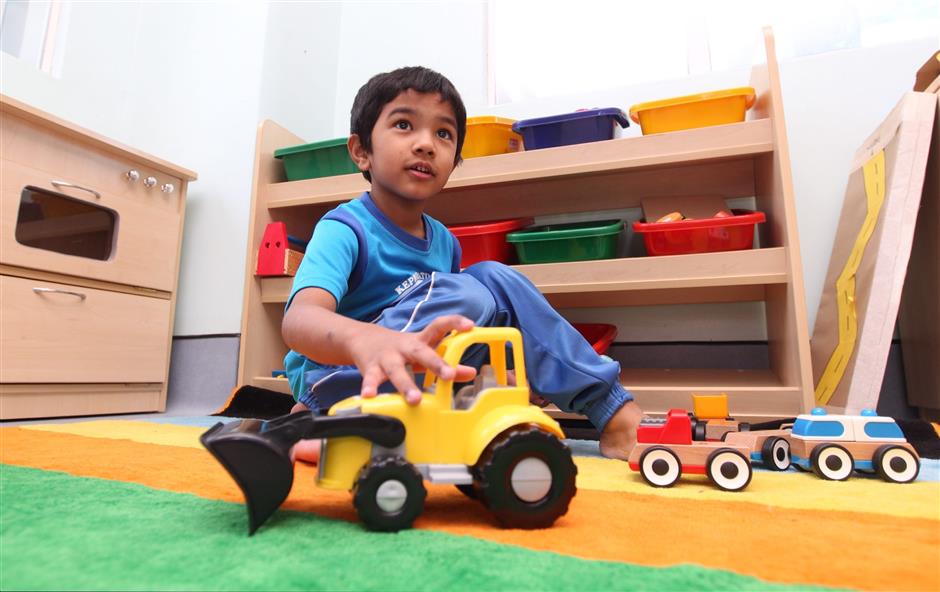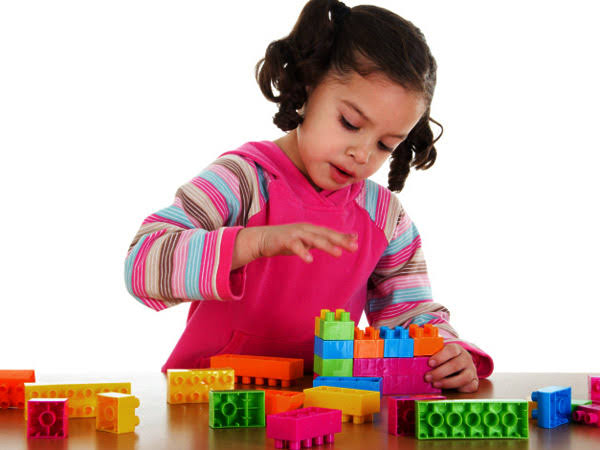
Children are a perfect combination of mischief and innocence. Kids tend to have an excess amount of energy and there are numerous reasons for the same. The fact that every kid is intensely energetic, which parents confirm the same for their kids from all over the world. This energy can be a cause of many things. But at the same time, it is difficult to keep up with your hyperactive child. A hyperactive child is fidgety, restless and leaves tasks unfinished or have a continuous shift from activity to activity. There can be an issue for the kid to understand commands like sitting still, or being quiet when and where necessary.
Signs of instability and inattentiveness increase the difficulty level for parents to handle or nurture their kids which may include activities like feeding, playing, or even lost concentration while in educational learning. Parents need to understand that excess energy is not the core issue, instead the instability is the core problem. Hyperactivity amongst kids can result in impulsive behavior in the latter half of their lives. To begin with, you can start monitoring your child. Signs that a kid is hyperactive are such as:
- Difficulty in learning or listening.
- Difficulty in understanding directions,
- Difficulty in sitting stable at one place,
- Unable to control interruptions in between conversations,
- Constant jumping and failing to understand any kind of instructions,
- Difficulty in concentrating their energy at one place or on a single activity,
- Difficulty in expressing emotions, instead of bringing out excess frustration, anger, or sad feelings.
- Being overly enthusiastic and continuously diverted energy.
- Facing difficulty in coordinating brain commands to body parts.
Pay attention to your hyperactive kids, as all the above-mentioned signs are also seen in kids having Attention Deficit Hyperactivity Disorder (ADHD). ADHD can also be another cause of your child’s excessive energy. Additional signs to identify in case of ADHD are forgetfulness, impatience, and speaking out of the turn. ADHD can be a result of genetics inherited from the family hierarchy. ADHD can cause overactive behavior, inattentive nature, and impulse behavior. To diagnose ADHD, early age monitoring is necessary. Instability can not always be ADHD and can be hyperactivity only. Also, ADHD does not have to be a disability, different ways to channel the hyperactivity into productive activities. It is important to keep in mind that a health check-up with pediatricians regularly is necessary to avoid any kind of mishaps in the later life of the kid. Here are a few things that you can to help your kid with hyperactivity –
- Provide your child with movement – Hyperactive kids can face trouble staying in one place. Restricting kids to sit or stand in one place can feel like torture to them. Using different activities, you can turn a simple boring subject into an interesting one. Enact different scenes, to engage your kid, playfully narrate different stories to grab your kid’s attention. Surprisingly hyperactivity can lead to lethargic habits, to avoid that, address your kid in a game with different move-around activities. Ask your kid to sit at one place for 10 minutes and then gradually increase the time. Use a beanbag to enhance the sensory integration of your child.
- Appoint to different activities – ADHD kids tend to feel restless all the time. To channelize that excess energy, you must enroll kids in different extracurricular activities. Trying out a different sport, or any kind of interest in dance helps the kid to focus on their likings. Taking trips to outdoor camping and arranging outdoor activities can bring out interest in kids. Buy different forms of art and craft stationery for kids, as colors help the kid to improve their sense of identification. The use of music as therapy can also help kids to calm down and decrease their hyperactivity as music improves attentiveness and concentration.
- Routine – As the child faces instability, it becomes difficult for him or her to stick to one thing for a long period. Forming a routine timetable and scheduling timely activities for your kid can bring discipline to the kid. Running the house in an orderly manner will help the child to cope up with the environment and escalate growth. In this way, the child is aware of what he or she can expect on the day or what is expected from him or her. Don’t forget to include helping in household chores, as it will allow you to spend quality time with your kid and help them pursue a hint of responsibility. The instructions given to the kid must be simple, even if any complex instructions break down the instructions into simpler forms for the kid to have a better understanding. Don’t loath the kid with a chunk of information right away, segmentize the information and then tell it to your kid.
- Be attentive to details – Kids need attention all the time. Especially when they have achieved something or accomplished a task. Being attentive to kids and the way they perform their tasks will help you to understand what they are doing, are there any difficulties they are facing, or even if they have done the appointed task correctly. Giving in-between recess to the kid can improve his or her thought process. These breaks can be structured or unstructured, as it is free time. Providing kids with breaks in regular routines can increase their engagement in their daily activities. A little time-pass can also unknowingly be converted into productive activities for the kids. Relaxation is necessary, use breathing techniques for recess time to calm down excess energy.
- Reward system – Kids often need encouragement; it can be in any form. But how can a reward system help in minimizing hyperactivity? Well, start to teach kids to be useful. Encouraging kids to take up responsibility and availing it, in return for some kind of reward that they will receive will streamline their hyper energy unidirectionally. Rewarding does not mean bribing kids; it means to appreciate them when they achieve their targeted goals. These goals can be task-specific or day-specific. Award children with stickers and healthy treats to spirit their energy into useful and productive activities.
- Positive approach – Hyperactive kids face issues when dealing with their feelings and demand additional attention. While helping kids with their set of feelings, peer pressure falls on the shoulders of parents, leading to frustration. You need to keep in mind that your child needs your exclusive attention and your help to understand their feelings. Keeping a positive approach towards your kids will keep a healthy environment for the kid and help him or she communicate better. You can also try behavior therapy for yourself and the kid if you are unable to keep up with the stress. Behavior therapy can help you to reward second chances to your kid.
It will be an additional help to your kid, as you increase your involvement in their life. Coping up with hyperactive kids can be difficult so educating yourself about your kids’ disorder can navigate you to teach your kid. Learn as much about your child by spending time with your kid. Read and research thoroughly. You can experiment with different methods with your kid. Lexicon Rainbow School, one of the top centres in Pune, has supported the cause with special courses and sessions that help you to understand the severity of hyperactivity and how to help your kid with hyperactivity. Prepare a plan and work on it and you will improve your engagement with your hyperactive kid.



